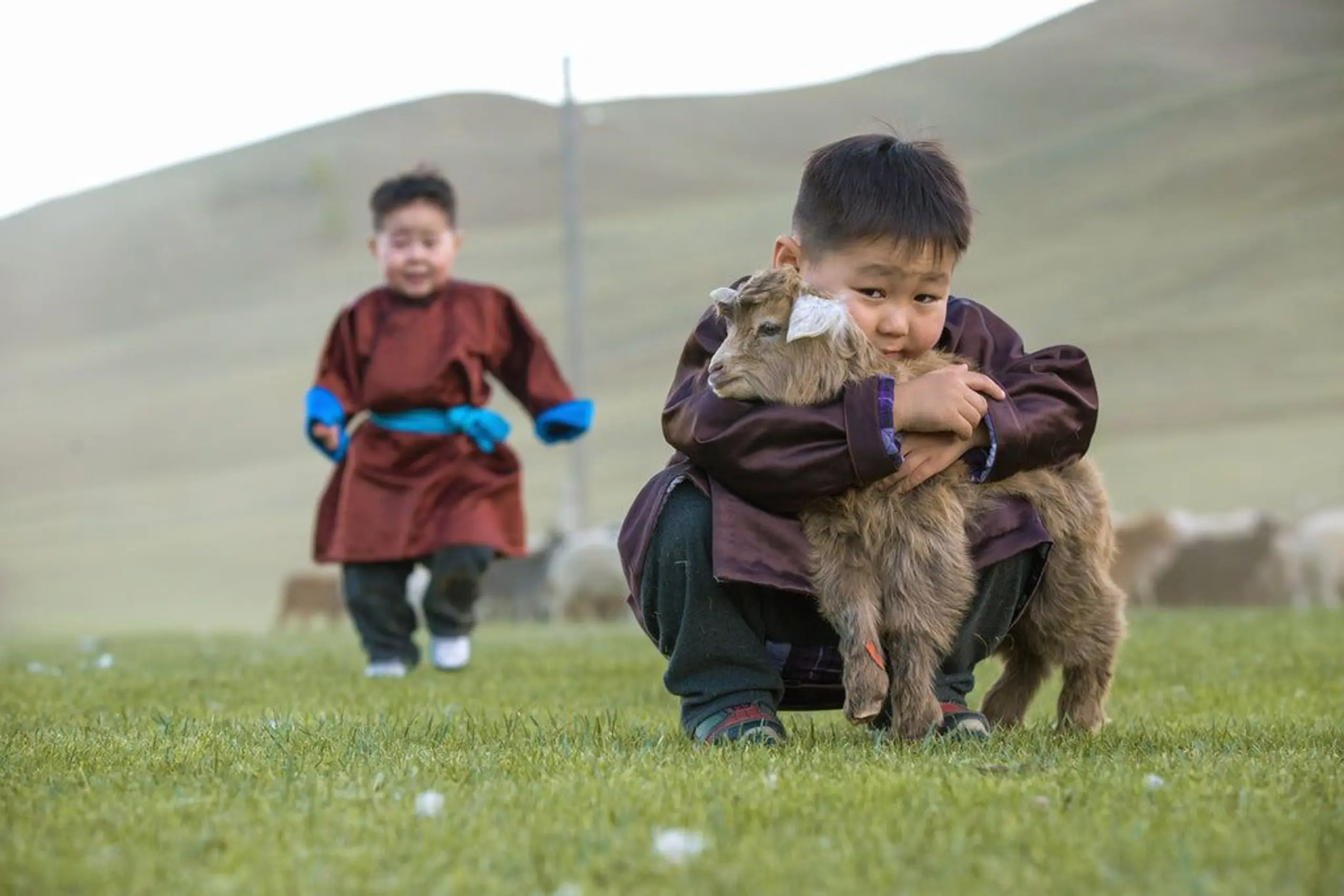Back

The Land of Soft Gold
September 25, 2019

Ariunzul Enkhbaatar
Head of Sustainable Development Division

Ariunzul Enkhbaatar
Head of Sustainable Development Division
As the Head of the Sustainable Development Division at GOBI Cashmere, Ariunzul is committed to upholding responsible and ethical practices throughout every stage of cashmere production. She spearheads initiatives in environmental protection, social responsibility, and ethical governance while collaborating closely with herders to promote sustainable sourcing. Deeply passionate about Mongolian culture and the livelihoods of the herders who make cashmere possible, she shares stories of their traditions, the artistry behind cashmere garments, and how GOBI Cashmere remains dedicated to sustainability.
SHARE THIS
Mongolia is described as a destination for adventure where travelers can witness the traditions of the past still practiced today by the hardened

Mongolia is described as a destination for adventure where travelers can witness the traditions of the past still practiced today by the hardened nomads of the vast steppes and deserts by most widely used guide books published by Lonely Planet.
The country covers an area of over 1.5 million square kilometers, which is more than Germany, France and Spain combined. Even though Mongolia is the least densely populated nation with only three million people, the traditional herders are one of the last remaining nomadic cultures. Surviving such harsh climates make the nomads tough and rustic. Even their clothing and home-components haven been created to be compatible with the climate and lifestyle.
On the freezing plains of Mongolia, animals have had to evolve over time to protect themselves. It is truly natural selection at its finest. The goats managed to survive by developing a thick layer of undercoat. One that is stronger and warmer than all fibers found on other goats around the world. This cashmere is the life source of not only the goats growing them but the people who herd them as well. It is the base of Mongolia’s profound connection with cashmere. As the global demand for textile increases, so does the price of cashmere. This is becoming one of the main contributors to the wallets of the herders as well as the state budget. Along with the growth of the industry, the term“ white gold” is becoming a frequent vocabulary.
Cashmere, the luxurious garment that is soft and cloud-like wispy. Stemming from the cashmere goat, the fiber is three times more insulating than sheep wool. It is combed from the underside of the goat in a very natural process at springtime when goats start to lose their winter coats. Herders with generations of expertise hand comb the fiber to protect the goats from overheating and to prevent them from follow-up animal diseases such as ticks and lice. This is the most sustainable and humane way of harvesting cashmere. To the goats, it is almost like receiving a massage. Cashmere is extremely light-weight and comfortable, keeping you warm in the cold and cool in the heat. Although the fiber is very delicate, if cared for properly, it can last a lifetime.
By Mongolians, cashmere is taken for granted because it is one of the most accessible materials. Almost every single Mongolian has been able to acquire it at a reasonable price. At the same time, high-quality cashmere remains one of the most luxurious fibers you can find to this day all around the world including countries like Mongolia, which produces more than it needs.